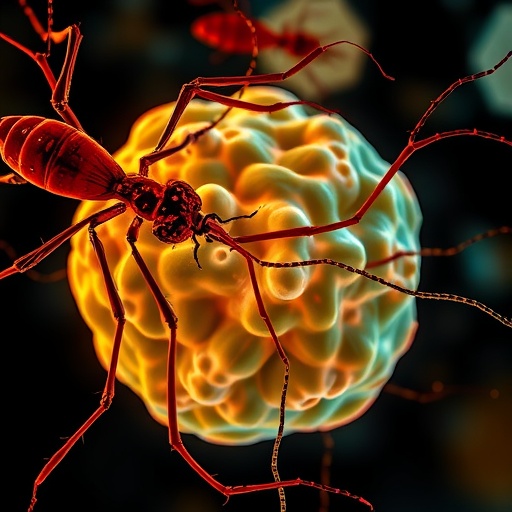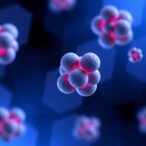In recent years, the intricate relationship between microbiota and human health has taken center stage in biomedical research. Among the diverse microbial inhabitants, Candida albicans—a common fungal species typically residing harmlessly within the human body—is emerging as a provocative player influencing cancer progression. This revelation is reshaping our understanding of tumorigenesis, as researchers uncover complex crosstalk between Candida albicans, the immune system, and malignant cells. A groundbreaking study published in Medical Oncology dives deeply into this enigmatic triangle, offering fresh mechanistic insights that could open new avenues for cancer diagnosis and therapy.
Initially regarded merely as an opportunistic pathogen responsible for superficial infections like thrush, Candida albicans is now drawing attention for its potential role in modulating the tumor microenvironment. This shift in perspective stems from sophisticated molecular studies revealing how fungal colonization can influence inflammatory pathways, impose immunosuppressive effects, and alter cellular signaling networks—factors that collectively sculpt the landscape in which tumors grow and evade immune surveillance. The emergent hypothesis positions Candida albicans not just as a bystander, but as an active contributor driving cancer progression through multifaceted interactions.
At the molecular level, Candida albicans triggers a cascade of immune responses that paradoxically can aid malignancy. Pattern recognition receptors on immune cells, such as Dectin-1 and Toll-like receptors, recognize fungal cell wall components, instigating NF-κB and MAPK pathway activation. While this typically orchestrates antifungal defenses, chronic stimulation may lead to persistent inflammation, supporting a pro-tumorigenic milieu. Persistent secretion of cytokines like IL-6, IL-1β, and TNF-α can induce DNA damage and promote cellular proliferation—hallmarks of cancer initiation and progression. Importantly, this chronic inflammatory state can foster genetic instability within epithelial cells, increasing the risk of malignant transformation.
Beyond inflammation, Candida albicans also manipulates immune cell functionality in ways that impair effective tumor immunity. Notably, it modulates macrophage polarization, skewing them towards an M2-like phenotype known for tissue remodeling and immunosuppression. This shift dampens antitumor immunity and facilitates tumor growth. Similarly, Candida can influence T cell responses by expanding regulatory T cell populations and inducing T cell exhaustion, which further suppresses cytotoxic activity. This immune evasion strategy is deeply troubling as it allows cancer cells to escape immune-mediated destruction, underscoring the insidious role of fungal colonization during cancer development.
In addition to immune modulation, Candida albicans releases an array of virulence factors that may directly impact tumor cells. Secreted aspartyl proteases and candidalysin, a cytolytic peptide toxin, disrupt epithelial barriers and induce cellular stress responses. These effects can enhance cancer cell invasiveness by degrading extracellular matrix components, facilitating metastasis. Moreover, candidalysin-mediated epithelial damage triggers compensatory proliferation—a mechanism that potentially accelerates tumor expansion. This interplay between fungal virulence and host tissue integrity highlights a novel dimension in tumor microenvironment dynamics previously unappreciated in oncology.
The bidirectional communication extends further as cancer cells themselves shape fungal behavior, creating a feedback loop. Tumor-derived metabolites, such as lactate and prostaglandins, serve as nutrient signals promoting fungal growth and biofilm formation. These resilient biofilms confer resistance to antifungal treatment and immune clearance, maintaining persistent fungal presence within tumor niches. The stabilizing effect of the tumor niche on Candida albicans supports sustained inflammatory and immunosuppressive signaling, perpetuating cancer progression. This self-reinforcing symbiosis exemplifies the complexity of host-pathogen-tumor interactions, demanding more integrative research approaches.
Recent clinical observations correlate Candida albicans colonization with poorer prognoses in solid tumors including oral, colorectal, and pancreatic cancers. Patients with elevated fungal burden often exhibit aggressive disease phenotypes and diminished responsiveness to conventional therapies. These findings suggest fungal presence may serve as a valuable biomarker for cancer severity and treatment stratification. Consequently, antifungal interventions combined with immunotherapy are being explored in preclinical models, seeking to disrupt fungal-induced tumor-promoting circuits and rejuvenate antitumor immune responses.
The implications of this tripartite relationship extend into therapeutic innovation. Understanding how Candida albicans manipulates immune checkpoints and inflammatory pathways paves the way for novel drug targets. For example, inhibitors targeting fungal cell wall components or candidalysin activity could attenuate tumor-supportive microenvironments. Likewise, modulating macrophage polarization to restore antitumor phenotypes promises to counteract fungal-driven immunosuppression. The integration of antifungal strategies with cancer immunotherapies could revolutionize treatment paradigms, particularly for patients with refractory or advanced malignancies.
Beyond oncology, this research stimulates broader discussions about the role of commensal fungi in human disease. It challenges the prevailing bacteria-centric view of the microbiome by highlighting fungi’s active participation in pathological processes. Given the extensive cross-kingdom interactions spanning microbiota, immune cells, and host tissues, a more holistic perspective is essential. This paradigm shift encourages multidisciplinary collaboration merging mycology, immunology, and cancer biology, fostering comprehensive understanding and innovative therapeutics.
However, many questions remain open. The causality versus correlation debate of fungal colonization in cancer risk necessitates longitudinal studies and refined models. Disentangling the precise signaling axes linking Candida albicans to tumor progression demands advanced single-cell analyses and spatial transcriptomics. Furthermore, elucidating how fungal diversity and strain variability influence cancer outcomes will enhance personalized medicine approaches. Addressing these gaps will require concerted investment in cutting-edge technologies and collaborative networks.
In summary, the entwined roles of Candida albicans, immune cells, and cancer progression reveal an unsettling but fascinating narrative: a seemingly benign fungus can intertwine with immune dysfunction and tumor biology to drive malignancy. This intricate biological choreography underscores the delicate balance within our internal ecosystems and how perturbations can tip the scales towards disease. As the research community continues unraveling this enigmatic tripartite relationship, the promise of novel diagnostics and therapeutics shines brighter, heralding a new frontier in the fight against cancer.
Candida albicans’ unexpected role in cancer progression illuminates the profound influence of host-microbe interactions on health and disease. This study provides compelling evidence that fungi, alongside immune modulation, exert powerful effects on tumorigenesis, challenging traditional views focused solely on malignant cells. The biological interdependencies outlined provoke a paradigm shift, urging oncology to consider fungal biology within cancer pathology. Harnessing this knowledge could transform clinical management, offering hope for improved survival and quality of life for cancer patients worldwide.
As we venture deeper into the microbiome-cancer nexus, the spotlight on Candida albicans epitomizes the need to decode microbial contributions beyond simple infection models. These insights herald a future where microbial ecology and immune dynamics become integral to understanding and confronting cancer. The cross-disciplinary revelations stemming from this research are poised to inspire novel interventional strategies and redefine therapeutic frontiers. The interplay of fungi, immune cells, and cancer is not only a captivating biological story but a promising beacon toward conquering one of humanity’s most formidable diseases.
Subject of Research: The complex interplay between Candida albicans, immune cells, and cancer progression, highlighting fungal influence on tumorigenesis
Article Title: The trio of Candida albicans, immune cells, and cancer progression: a complex interplay driving tumorigenesis
Article References:
Verma, R., Saxena, P. & Khan, L.A. The trio of Candida albicans, immune cells, and cancer progression: a complex interplay driving tumorigenesis. Med Oncol 42, 527 (2025). https://doi.org/10.1007/s12032-025-03089-2
Image Credits: AI Generated
Tags: cancer diagnosis and fungal infectionscancer immunology and CandidaCandida albicans and cancerfungal influence on tumor progressionimmunosuppressive effects of Candidainflammatory pathways and tumorsinsights into tumorigenesis and microbiota.mechanisms of Candida in cancermicrobial colonization and cancer therapymicrobiota and immune system interactionsopportunistic pathogens and malignancytumor microenvironment and fungi



